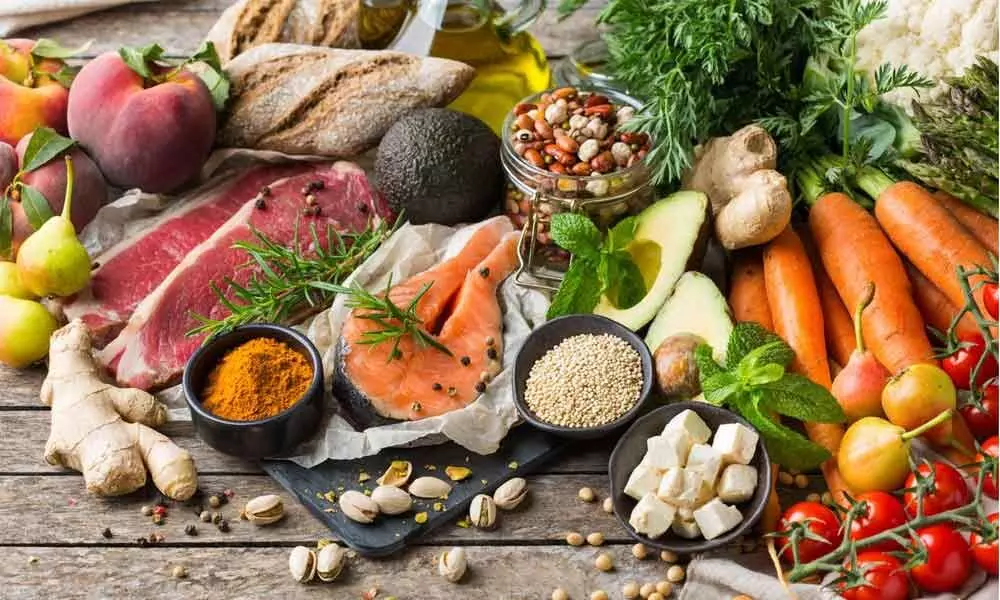Dietary Do's and Don'ts for Hypothyroidism

Dietary Do’s and Don’ts for Hypothyroidism
Your thyroid gland is responsible for secreting hormones that are important for controlling your metabolic rate.
Your thyroid gland is responsible for secreting hormones that are important for controlling your metabolic rate. Thus, a disorderly production of thyroid hormones, slowsdown metabolism and other body changes such as weight gain, hair loss, and lack of energy. This condition is called Hypothyroidism.
In my past 21 years of experience, my dietshave helped regulate many client's thyroid hormone levels, from lowering the elevated Thyroid Stimulating Hormone to even going off medications!
When I get new clients with hypothyroidism, I tell them to not fear. If you have been recently detected with hypothyroidism, do not worry. Read my Dietary Do's and Don'ts below to better understand how diet plays a prominent role to reversing hypothyroidism.
Starting with the Dietary Don'ts are foods that naturally slow our metabolism. They are known as goitrogens as they prevent the uptake of nutrient Iodine by the thyroid gland. Limit these foods in your diet to support proper functioning of the thyroid gland.
Cruciferous Vegetables
Cabbage, Brussels Sprouts, Broccoli, Cauliflower
Leafy greens
Fenugreek(methi), Spinach, Kale
Dairy Products
Milk, Paneer, Cheese, Curd
Fruit: Peach, Plum
Soy Based foods
Edamame, Soya, Tofu, Lima Beans
Grains and grain substitutes
Wheat, White Flour (Maida), Oats, Rawa (semolina), Barley (Jav), couscous, Dalia (broken wheat), Pearl millet (Jowar), Sweet potatoes, Maize (Makai)
Processed foods
Foods high in Sugars, Salts, Fats
Other
Almonds, Peanuts, Eggs, Red meat
Drinks
Alcohol, Caffeine
While this list may seem quite intensive, I don't want you to wonder now what will you eat? My extensive Dietary Do's list covers all the other local Indian foods that you can include in your diet. Remember to make seasonal choices to get the best nutrition for yourself.
Vegetables
Tomatoes, Onions, Carrots, Eggplant (Baingan), French Beans, Broad Beans (Papdi), Amaranth Leaves (Chauli), Gluster Beans (Guvar), Red, yellow, Green Capsicum, Bottle Gourd (Doodhi), Bitter Gourd (Karela), Pointed Gourd (Parval), Pumpkin (orange and white), Ridged Gourd (Turai), Cucumber, Zucchini, Mushroom, Ivy Gourd (Tindli) and Drumstick (Shinghi) to name a few.
Fruits: Banana, Chickoo, Guava, Strawberries, Pear, Papaya, Pineapple, Sweet Lime (Mosambi), Mango, Watermelon, Musk Melon, Orange, Grapes, Grape Fruit, Pomello, Litchi, Black Jamun, Amlas, Custard Apple, Apple, Cherries, Kiwi and Plum.
Grains: Rice, Amaranth (Rajgirah), Waterchestnut (Singhada), Pearl Millet (Bajra), Finger Millet (Ragi, Nachni) and Verghu (Samo).
Nuts and Seeds: Brazil Nuts (highest in selenium), Cashew nuts, Pistachios, Flax seeds, Pumpkin Seeds, Watermelon Seeds and Sesame Seeds.
Pulses: Kidney Beans, Chickpeas, Black beans, Pigeon peas, peas, Moong (green and yellow), Bengal Gram Daal, Toor Daal. All pulses and legumes in any form.
Animal Products: Fatty Indian fish like Rawas, Surmai, Paplet or Prawns.
Remember to keep a check on your Vitamin D3 as low levels impair thyroid functioning.








